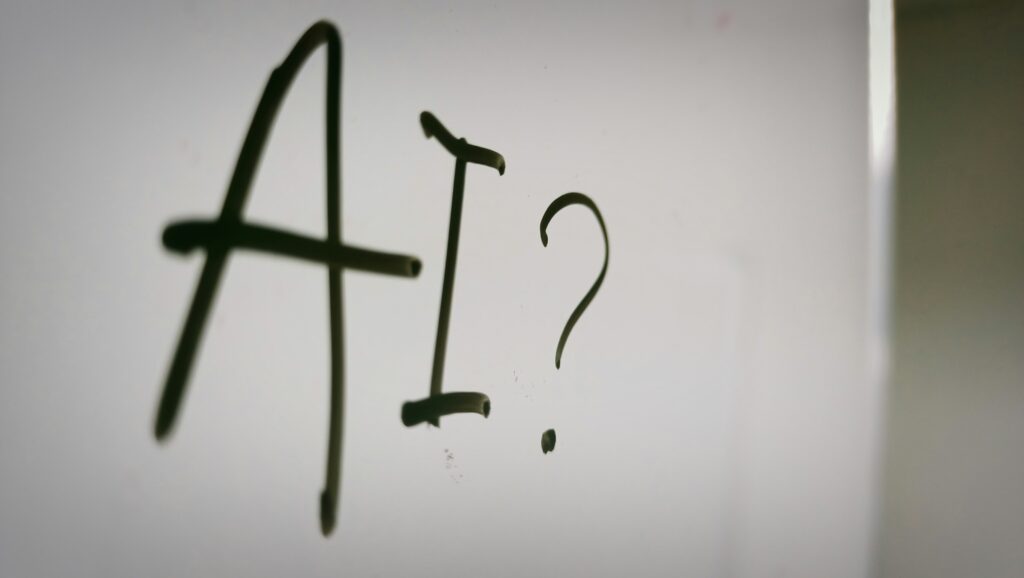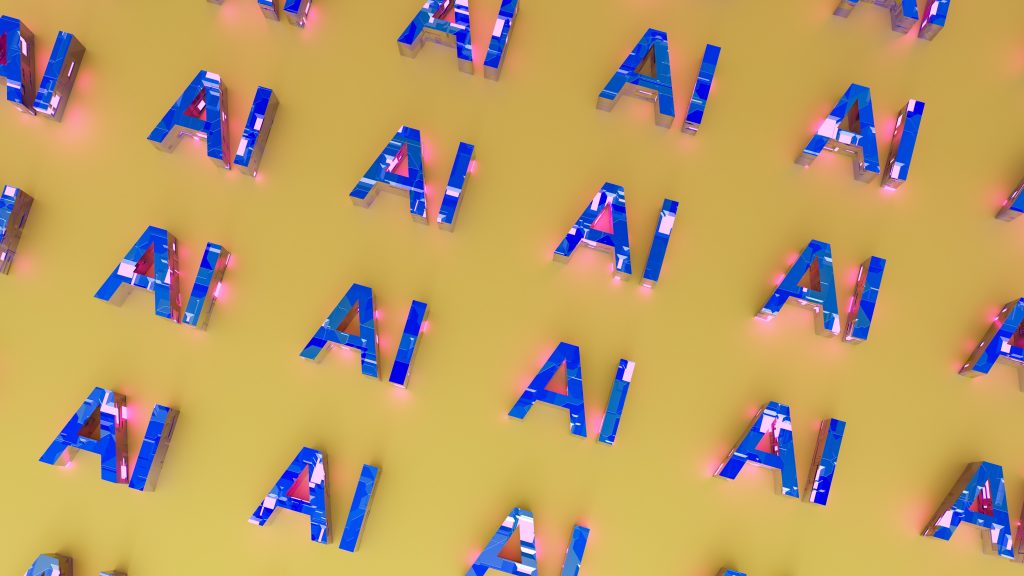The rapid development of AI technologies generates more and more questions in society. How good is AI content? How does Google treat content that is labeled as AI-generated? Can modern content generation tools completely replace human writers, and how feasible is it to use AI-generated content in college?
We will analyze various nuances associated with AI content and try to answer all the most pertinent questions. After reading our article, you should have a clear idea about whether to hire a professional essay writer and how much you can rely on AI-generated content.
What Are AI Content Writing Tools
AI content writing tools are computer systems utilizing natural language processing and artificial intelligence to create written material automatically. These technologies offer many advantages, chief among which are the saving of time and effort for those who use them.
These types of automated processes can be limited in what they produce compared to human authors. This is because they cannot accurately reproduce the nuances of human emotions, thoughts, and experiences. For example, an AI-generated article on ‘how to write an essay’ would not benefit from the narrative capabilities brought by experienced writers able to craft their language and thoughts differently based on their audience’s needs or preferences.
AI-generated material may contain grammar issues or inappropriate wording, which competent human writers could quickly amend using their editing skills and understanding of writing and of the client’s needs when drafting assignments. Although intelligent technology can produce a speedy output, it lacks creativity when it comes to producing original work without plagiarism. This is something that solely humans can consistently supply due to their unique repository of experiences.
Pros and Cons of AI Writing Software
The debate between artificial intelligence (AI) powered writing software and humans has been ongoing. AI-based tools have helped many writers hone their craft and create valuable content for readers, but they also have certain drawbacks.
On the one hand, using AI software offers several advantages:
- AI writing tools can be used to check spelling and grammar and provide feedback on the quality of the text.
- AI writing tools can generate unique topics for essays or stories which might otherwise not have occurred to someone looking at a blank page.
- AI writing tools can help authors think more critically when producing content and give them another point of view on their work which can help identify areas of improvement.
Despite these benefits, however, various disadvantages are associated with relying solely upon Artificial Intelligence systems for composing material:
- AI writing tools can only partially replicate human feelings or experiences into written form, resulting in literary works that may feel flat or lack credibility.
- AI writing tools can struggle against other variables, such as different user contexts where particular target demographics will not engage well with generic automated outputs.
- Due to algorithmic limitations, some inconsistency arises from tautological phrases being repeated within texts and potential plagiarism issues, which specialized plagiarism prevention mechanisms often detect before publishing.
No matter how advanced writing assistant software becomes, it will still lack the originality, imagination, and individual flair only actual human composers possess. While technology is a helpful asset in aiding our compositions, tools alone cannot replace creativity formed through unique life experiences.
How AI Content Differs From Human Content
The key to understanding the problem of AI content is the features that distinguish generated-content from human-written content. Understanding these differences is essential to compare content quality and identify factors that will help your reviewer determine the origin of content more accurately.
Human writers remain an integral part of the content production process due to their capacity for producing more personalized and individualized care and attention. This is something that AI-generated content fails to capture, making it difficult to connect with the audience.
Examples of how human authors differ from automated systems may be seen in voice and tone, emotional connection, ability to adapt within various contexts, and versatility. Much like the way a person’s personality and mannerisms shapes one’s voice and speaking style, human-written material tends to be full of subtle emotions, which help form an authentic relationship with the listener or reader. This type of communication through narration and metaphor creates a unique bond between the author and readership by triggering specific emotional reactions only achievable by organic text composition.
In comparison, artificially-generated writing struggles to create this engaging experience as the data fed into algorithms doesn’t provide any context beyond factual information. When facing different situations or diverse audiences with different needs, such as location-based perspectives or language barriers, human authors can draw on their imagination, combined with knowledge they’ve acquired over time to adapt appropriate writing styles and content. Human writers can also provide bespoke solutions regarding what is demanded in each case based on instinct instead of statistics. Human writers can go against fixed templates, whereas AI relies on significantly more rigid computer programming algorithms.
Furthermore, AI output largely remains predictable depending upon the parameters set during the construction stages. In contrast, humans can quickly diversify their output given the significant number of literary styles at the disposal of professional writers, be it poetry, prose, nonfiction scripts, etc.
Customers often prefer tailored or custom options over generic ones. At the end of the day, human writers have the edge over AI in their ability to create captivating and diverse content. If you ask a person to “write my essay,” you will most likely get a better essay that will impress the reviewer much more.
Popular AI Writing Tools
In this section, we will look at the most popular AI tools, highlight their main advantages and disadvantages, and compare them to the qualities of an experienced content writer. We note in advance that even the most expensive tools still inherit the common shortcomings of AI-generated content and should be used ONLY as an auxiliary tool for speeding up writing.
ChatGPT
ChatGPT is an AI language model that can assist with complex tasks like blogging, researching, and discussion. Its benefits include handling large input volumes and swiftly answering various queries. However, it has some drawbacks, such as being heavily reliant on pre-existing material resulting in biased replies and sometimes providing erroneous sources.
Additionally, ChatGPT lacks the originality of humans, takes up time for setup, and has difficulty comprehending specific inquiries, which may lead to wrong or meaningless responses. The price depends on the access amount and usage desired. Still, users should bear in mind ChatGPT’s limitations when using it for research or content production and combine its use with other tools to secure legitimate information.
GPT-3 by OpenAI
GPT-3 by OpenAI is a powerful tool with many potential applications. It can accurately generate natural language responses to queries and prompts, which makes it useful for content production and research. However, its high level of sophistication may render it difficult to use effectively without technical knowledge or experience.
Users should be aware that GPT-3’s training data includes inherent biases which might lead to erroneous results. OpenAI offers three pricing plans:
- A free tier with limited features
- Developer plan (starting at $400/month)
- Professional plan (starting at $4,000 /month)
Knowing its limitations will allow users to make an informed decision when utilizing GPT-3’s services.
Jasper.ai
Jasper.ai offers a straightforward platform spearheaded by AI-driven content generation and optimization functions, such as SEO and social media scheduling. Beginners will likely find the interface easier to handle as it requires minimal technical aptitude.
Its pricing options might not be viable for startups or independent professionals. Some material created by its AI blog tool may not meet expectations. Additionally, it has been said that customer service and documentation could use some improvement.
The Starter Mode boasts a cost of $29 per month for 20k words per month, while Boss Mode reaches up to $59 per month for 50k words per month. Jasper.ai is comparatively pricier than competitors offering the same scale of production power.
CopyAI
Copy.ai is a free content writing platform offering an online paraphrase tool to help individuals create content more easily. Its user-friendly layout makes it straightforward for people with limited technical expertise to access and use the site. Depending on the application, the AI-generated content on Copy.ai may not always meet every user’s requirements. It could require further modification or adjustments to achieve their desired goals.
Due to a lack of adequate customer service and instructions available at some points, users may sometimes struggle to get the information they need. These difficulties may make smooth usage of copy.ai services difficult for users. Subscription plans include Free and Pro plans costing $0 and $49 per month, respectively.
Why Is Human-Generated Content Better?
Now you have enough information to understand the benefits of human-written content. Although it may be cheaper and easier to turn to AI, only a professional writer from an essay writing service can write a high-quality essay that will positively impact your academic performance.
Human-generated content is often preferred over AI tools when it comes to writing assignments or creating engaging content. Human writers are better equipped than automated technology to understand the standards and requirements expected of them as set out by schools or other organizations.
In addition to possessing a deeper understanding of their tasks, experienced professional writers demonstrate a greater level of creativity which can be brought to your assignment. This means readers receive original pieces written with personalities and tones that are difficult for machines to generate. It is this element that makes human-generated content so popular; its ability to create meaningful connections between people across different platforms – beyond simply providing facts and data.
Even the best AI generators do not possess the same skill set as compared to essay writers from EssayShark, who understand how each reader may interpret certain words differently based on their experiences, professional knowledge, or background. For marketers, business professionals, educators, and others looking for authentic material that resonates deeply with readers, nothing quite beats genuine human talent for developing quality-material tailored towards achieving specific goals through creative expression.
Why Choose EssayShark to Write Excellent Human-Generated Content
EssayShark offers an alternative to automated AI content-generating programs: a qualified team of essay writers. Our writers include college academics and teachers with extensive academic writing experience.
Choose EssayShark as your go-to essay service. You can contact the assigned writer immediately and follow their progress – we guarantee that your paper will meet all your requirements and that the finished work will be provided on time.
Another considerable advantage of having human authors is that they can add some charm, flair, originality, and uniqueness to their work. Every word and phrase written by humans excludes any risks of computer errors, ambiguities, or plagiarism, which makes it a trustworthy source for high-quality essays.
Moreover, our authors pay special attention to how you usually write to shape your future assignments accordingly, thus making them unrecognizable from what would’ve been written solely by yourself. At EssayShark, we prioritize authentic human content over generated content to ensure superior-level results for each paper delivered by our professionals. This helps guarantee that the results match our client’s expectations.
Can Google Distinguish AI Content From Human-Written Content?
Google’s algorithm is constantly changing to keep up with the advancements made in Artificial Intelligence, but so far, it places more value on human-generated content. This is due to originality, relevance, and customer engagement – qualities that material written by an AI essay writer may not possess.
While an AI-created text can be initially successful from the search engine optimization standpoint, its performance depends heavily on various factors. The top priority of the Google algorithm remains high quality, online visibility, usefulness, and organic traffic, meaning if an AI writing tool fails these essential criteria, the content will be penalized accordingly.
Moreover, if the generated material appears similar or repetitive to other streaming media sources, the content’s ranking within Google may suffer greatly. Yet, as cost-effective tools are increasingly being developed as companies invest time in optimizing their content creation processes, we can expect more extraordinary things from AI texts soon enough.
However, human efforts remain paramount when trying to achieve meaningful website interaction that offers significant value – something only available through authentic dialogue between people that automated machines cannot replicate accurately.
AI Content Detection
Due to the rapidly growing popularity of AI writing tools, more and more generated content detectors are appearing on the market. These detectors differ from each other in cost and quality of detection. Some of them are fake or use incorrect algorithms. Others are more reliable and, at a distance, are more likely to determine AI content than not.
It must be understood that today there is no single unmistakably reliable AI detector, and it is unlikely that one will appear soon. Like the confrontation between shields and swords, the creators of AI generators are gradually complicating their algorithms, overtaking detectors. In addition, there are more and more daily complaints about some sensors that mistakenly label human-written articles as AI-generated.
However, if the origin of the content is essential to you – for example, if you are writing an essay for college, then using generation tools is strongly discouraged. Many teachers today are obsessed with finding false assignments and dream of accusing even the most conscientious student of fraud. And while AI content is acceptable in itself, it is unlikely that your teacher will appreciate the generated essay. Remember, the only reliable way to eliminate risks is to submit superior essays written by yourself or with the help of a professional writer from EssayShark.
There are well-known cases when students are caught using ChatGPT, punished, and even expelled from universities. There is an old saying that free cheese is found only in a mousetrap. Do not risk your academic future for the sake of meager savings – order only high-quality, top-notch essays from trusted writers!
The Verdict: Can AI Content Replace Content Writers?
AI content has been rapidly evolving recently, but it cannot replace the work of human authors. It may be capable of providing basic texts on products or services, but it fails to generate content that contains an emotional appeal and can engage with readers. This is where human authors come in, bringing their opinions, expertise, and knowledge.
AI tools designed for content creation are still limited by how much applicable data they have access to, and they are unable to replicate the unique ideas that humans can create.
Ultimately these tools will help build better-quality posts and support a writer’s creative approach. They can support SEO writers but not substitute them. Human proofreading and original content creation remain the top priority for brands looking for compelling stories coupled with personal insights.
Therefore although automated utilities offer valuable assistance in the development of media materials, genuinely original writing composed by skilled humans is an irreplaceable part of any marketing campaign.








